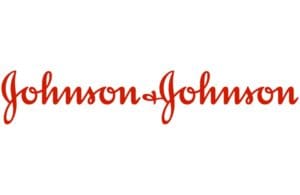 Johnson & Johnson (NYSE:JNJ) announced that its lead SARS-CoV-2 vaccine candidate protected against infection of the virus causing COVID-19 in pre-clinical studies.
Johnson & Johnson (NYSE:JNJ) announced that its lead SARS-CoV-2 vaccine candidate protected against infection of the virus causing COVID-19 in pre-clinical studies.
New Brunswick, N.J.-based J&J published data in Nature that showed the company’s investigational adenovirus serotype 26 (Ad26), vector-based vaccine elicited a robust immune response with “neutralizing antibodies” to prevent subsequent infection and provide complete or near-complete protection in the lungs from the virus in non-human primates.
Researchers immunized the non-human primates with a panel of vaccine prototypes before challenging them with SARS-CoV-2 infection. Of seven vaccine prototypes tested, Ad26.COV2.S elicited the highest level of neutralizing antibodies, which correlated with the level of protection, confirming early suggestions that they could be a potential biomarker for vaccine-mediated protection.
The six non-human primates that received a single immunization with Ad26.COV2.S showed no detectable virus in the lower respiratory tract after exposure and only one of six showed very low levels of the virus in a nasal swab at two time points.
“We are excited to see these pre-clinical data because they show our SARS-CoV-2 vaccine candidate generated a strong antibody response and provided protection with a single dose,” J&J vice chairman of the executive committee and chief scientific officer Dr. Paul Stoffels said in a news release. “The findings give us confidence as we progress our vaccine development and upscale manufacturing in parallel, having initiated a Phase 1/2a trial in July with the intention to move into a Phase 3 trial in September.”
Based on the data published by the company, it has now commenced a Phase 1/2a, first-in-human clinical trial of the vaccine candidate (Ad26.COV2.S) in healthy volunteers in the U.S. and Belgium, according to the release.
The Janssen trial will evaluate one-dose and two-dose regimens of Ad26.COV2.S in parallel studies. The Phase 1/2 clinical trial will evaluate safety, reactogenicity and immunogenicity in over 1,000 healthy adults between 18 and 55 years old, as well as adults over 65 years old. There is also planning underway for a Phase 2a study in the Netherlands, Spain and Germany, as well as a Phase 1 study in Japan.
Emphasis will also be placed on the representation of populations that have been disproportionately impacted by the pandemic in the Phase 3 trial designs. In the U.S., that would include the representation of Blacks, Hispanic/Latinx and participants over 65 years of age.
J&J said that, as the clinical development for the vaccine progresses, it will increase manufacturing capacity, as it is already in active discussions with strategic partners to support worldwide access as the company aims to supply more than 1 billion doses globally over the course of 2021, should the vaccine be safe and effective.
“As we collectively battle this pandemic, we remain deeply committed to our goal of providing a safe and effective vaccine to the world,” J&J’s Janssen R&D global head Dr. Mathai Mammen said. “Our pre-clinical results give us reason to be optimistic as we initiate our first-in-human clinical trial, and we are excited to enter the next stage in our research and development toward a COVID-19 vaccine. We know that, if successful, this vaccine can be rapidly developed, produced on a large scale and delivered around the world.”
Filed Under: clinical trials, Drug Discovery, Drug Discovery and Development, Infectious Disease



